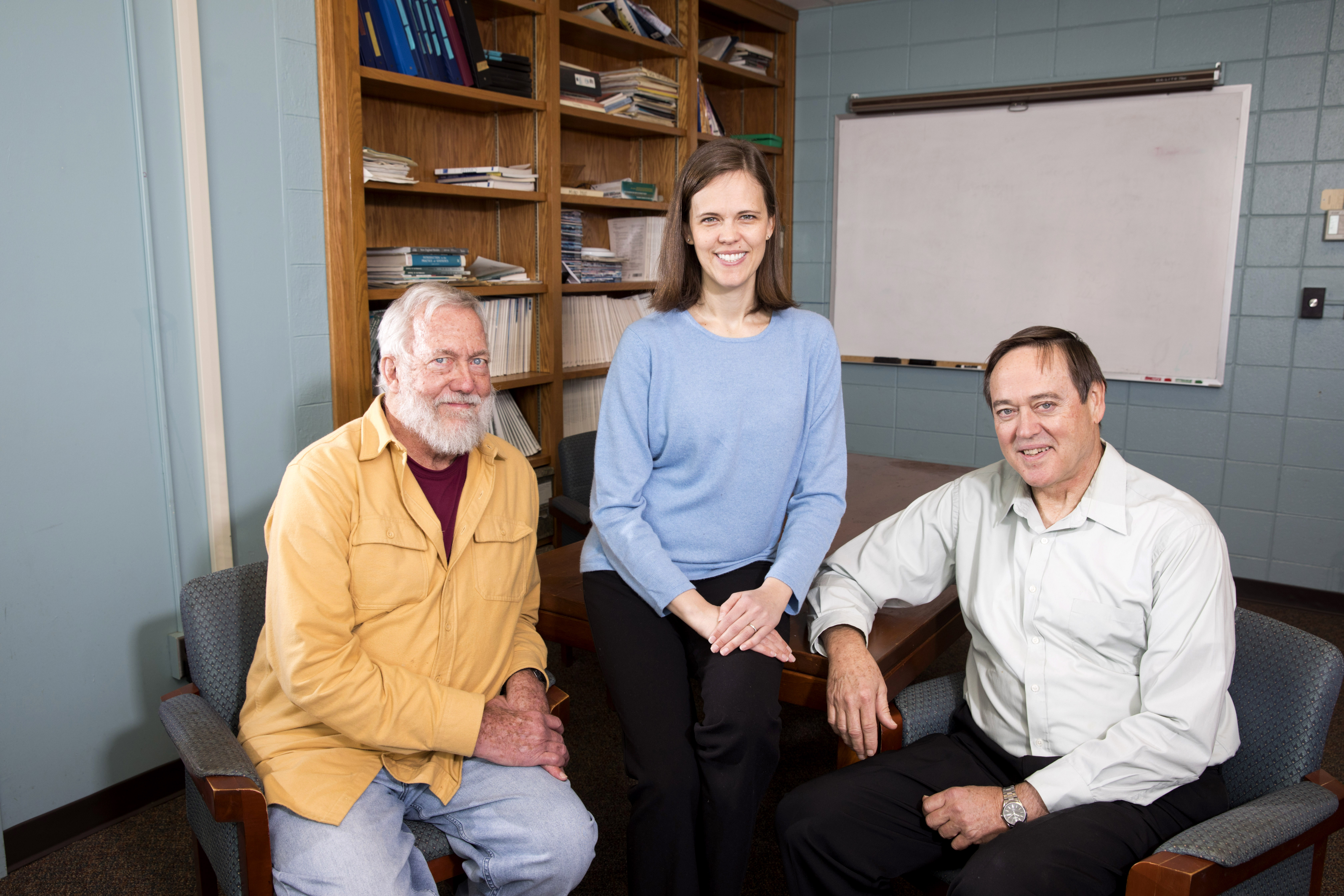Almost 30 years ago, Karl Espelie began teaching a class that brought in speakers from biological and health science professions as a way to show students their options.
Cheryl Maier was one of those students in 2002, and she has been one of the speakers every year since. Espelie, a Josiah Meigs Distinguished Teaching Professor of Entomology, wanted his students to see the undergraduate research opportunities available to them, so he asked Maier, who worked in Steven Stice’s lab as a student, to speak to his class. And although she graduated from UGA in 2004, she kept coming back through eight years of medical school and doctoral studies at Yale University.
On Feb. 18, she’ll be back for her 15th year teaching with her dad, GRA Eminent Research Scholar Robert Maier. The professor of microbial physiology had spoken with classes on his own while Cheryl was an undergrad, but Espelie thought it might be fun to have the pair co-teach.
“The class made such an influence on my trajectory,” said Cheryl Maier, now a transfusion medicine specialist in the department of pathology and laboratory medicine at the Emory School of Medicine. “At first, coming back to teach was a nice excuse to come home to Athens. But I have come to cherish the energy and enthusiasm of the students and also the opportunity to support their career development in some small way. There’s nothing more rewarding than coming back and sharing my experience, and later hearing how it positively influenced another student’s path. Plus, it’s so special co-teaching with my dad.”
The guest speakers don’t just discuss research in the class. They get a little more personal.
“I talk about my career path and why I do what I do today—study microbes,” Robert Maier said, “and why I made the decisions that I did about going to graduate school and what I worked on there. Then I went to Johns Hopkins for 20 years as a faculty member, and then I was recruited here. And I talk about the rationale on making those big career decisions and about how the Georgia Research Alliance has impacted my career.”
Likewise, Cheryl Maier tells students that she didn’t expect a career in transfusion medicine, but she kept an open mind and ended up in a field she loves.
“I always tell the students that I remember being in their seats, trying to pass organic chemistry and taking all of these hard classes,” she said. “College can be very difficult.
“When I was in their shoes, I didn’t know that I would be going to go off to Yale for the M.D.-Ph.D. program and that things would fall into place. When you’re in the weeds of it, it can feel very daunting. I am thankful for the guidance I got from Dr. Espelie’s class and from other professors, including my dad, that kept me passionate and focused on my goals.”
The class also serves as an opportunity for students to make connections with people who can help advance their careers. Like Cheryl Maier, several of the speakers took the class themselves when they were sophomores, which gives students the encouragement that they too can successfully make it through their classes and on to the careers of their dreams.
“I feel blessed that such outstanding people are willing to be guests in the class, and it gives a really wonderful opportunity for the undergraduates to be able to meet these people,” Espelie said. “And they really care about the students.”
This semester, Espelie is continuing the tradition of family co-teaching, adding one more familiar face to the speaker lineup: his daughter, Erin
Espelie, an assistant professor of cinema studies and moving image arts at the University of Colorado Boulder, filmmaker and editor-in-chief of Natural History magazine.
“She’s very much involved in trying to have an interface between art and science in filmmaking,” Espelie said. “She’s a great example of somebody who took a different road.”


